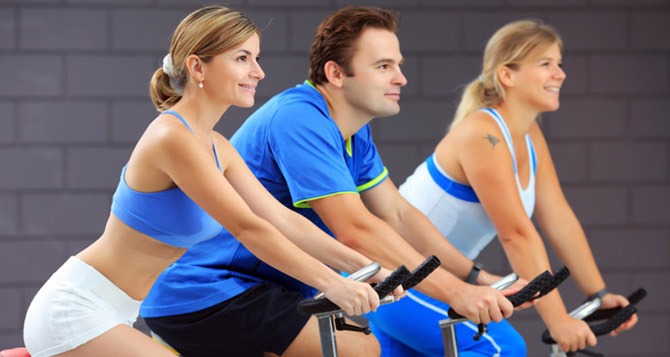As endurance athletes, the majority of our focus is on training the cardiovascular system. We are always looking to the next major goal and trying to become faster and stronger.
The ability to race to your potential is dependent on the quality of our training as well as our ability to recover from the stress of training.
Your body, along with your mind, are the most important tools you have when it comes to achieving success in sport. However, we don’t often think to look after the immune system.
The immune system’s main job is to rid the body of foreign bodies and to manage every day wear and tear including physical and mental stress. Training for triathlon can have both positive and negative effects on the immune system.
Easy to moderate level exercise can have help build up the immune system and will help you fight off illness. Training for triathlon and, in particular, training for Ironman, can undermine the immune system of even the healthiest athlete.
After training at moderate to high intensity or after long workouts, the immune’s defence system is weakened. The response is very similar to that of an infection (viral or bacterial) or injury (muscle strain or tear).
The 24 to 48 hours following a stressful workout has been associated with increased risk for upper respiratory illnesses and greater susceptibility to viral infections.
Also, as athletes enter the later stages of base and build preparation, the cumulative nature of training (combined with haphazard fuelling plans and insufficient recovery) can result in an elevation of stress hormones, which can further weaken the immune system on a daily basis.
How You Can Support The Immune System To Prevent Illness:
Some important steps you can take to prevent illness during your triathlon preparation is to avoid other sick people, practice exceptional hand washing technique, adhere to a sound nutritional plan and get adequate rest and recovery.
Fuel your training sessions appropriately. Workouts greater than one hour should be fuelled with at least 30 to 60 grams of carbohydrate per hour along with sufficient fluid to maintain a hydrated body.
An athlete who chooses to restrict their fuel intake during longer training sessions will cause more stress hormones to be released, which in turn will impact the body’s immune system.
Carbohydrates before, during and after training and racing will help maintain a healthy immune system. Try re-fuelling within 20mins of moderate to high intensity or long training sessions.
A diet rich in antioxidants will support the immune system as will a good multivitamin.
To Train Or Not To Train?
So, you are sick and we know that your immune system is working hard in fighting the foreign bodies.
If you train while you are sick you are putting your system under the stresses of trying to recover from the training load as well as the stresses of trying to fight and conquer your illness.
As a result, your immune system will be compromised and you could end up with a worse infection. You are effectively prolonging the healing process and your training will suffer.
We know that you might think it is the end of the world if you miss a training session however, it is much worse to train and end up with a worse infection.
The Following Steps Can Help You Make The Right Decisions:
- Firstly, you should let your coach know how you are feeling so that they can help you make the right decision and come up with a plan.
- If your symptoms are all from the neck upwards ie: you have a light head cold, sniffle or light sore throat and you do not have a temperature or aches and pains then easy training for 1-2 hrs is ok. If you do not feel motivated and or you are feeling tired and flat then you should rest. This is a good time to stretch and do some light core work.
- If you take regular resting heart rates and your heart rate is elevated by 5-10 bpm above normal the above advice would apply.
- If you have symptoms that are below the neck i.e.: you are sick in the chest and or you have aches pains, temperature’s DO NOT TRAIN. If you have symptoms that are consistent with a stomach bug DO NOT TRAIN.
- If you take regular resting heart rates and your heart rate is elevated by 10-20 bpm the above advice would apply.
- Look after yourself from the early onset and your immune system will do it’s job and heal quickly. If you keep trying to train you will compromise the immune system and in turn delay your recovery.
- Get plenty of rest (8hrs per night and naps if possible). Eat light (soups, crackers, fruit and steamed veggies) so that your body does not have to use energy digesting large meals.
- When you are feeling better and your symptoms have gone (no symptoms below the neck, aches, pains or temperature’s) then it is ok to resume LIGHT TRAINING ONLY.
Do not make the mistake of picking up training where you left off or trying to make up for what you have missed by going out and hammering the next session.
If you do this, you will be adding stress to your weakened immune system and you may end up back where you started, Allow your body the time to strengthen and heal properly by increasing your training load (intensity and volume) slowly.
- If you are sick for a week or more it is best to talk to your coach about how and when to resume training.
- Please remember that everyone gets sick from time to time, so try and stay relaxed and eliminate as much stress as possible. The sooner you get well, the quicker you will be better and back training and racing.
Finally,
DO NOT LOOK BACK UNLESS THAT IS THE WAY YOU WANT TO GO.






